“Do you really think these boys don’t know the difference between right and wrong?”
|
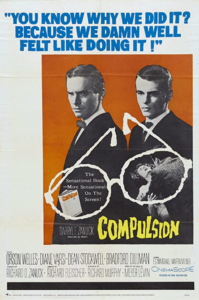
Synopsis:
A pair of college students (Bradford Dillman and Dean Stockwell) challenge each other to commit the “ultimate crime”, believing they can get away with murder given their “superior intellect” — but a local policeman (E.G. Marshall) is convinced that a pair of glasses found left on the scene belong to Stockwell, and soon the men have confessed. Will an infamous lawyer (Orson Welles) be able to defend them from the death penalty?
|
|
Genres, Themes, Actors, and Directors:
- Courtroom Drama
- Dean Stockwell Films
- E.G. Marshall Films
- Orson Welles Films
- Psychopaths
- Richard Fleischer Films
Review:
Richard Fleischer directed this adaptation of a novel about the infamous Leopold and Loeb murder case, based on a 1956 novel of the same title. While the names of the main characters have been changed, it is more faithful to the true facts of the crime than Hitchcock’s adaptation of Patrick Hamilton’s play Rope (1929) — thus providing viewers with a more realistic look at how such a heinous event played out (though the crime itself, thankfully, isn’t shown on screen). Top-billed Orson Welles deserves his status, turning in a noteworthy performance in what can only be described as a challenging role (how in the world do you successfully defend these two psychopaths?). However, Stockwell and Dillman are also perfectly cast, with Dillman fiendishly reveling in the power he believes he wields through his intelligence, and Stockwell clearly under his sway but also showing stark evidence of his own moral disturbances. This one remains worth a look.
Redeeming Qualities and Moments:
- Orson Welles as Jonathan Wilk
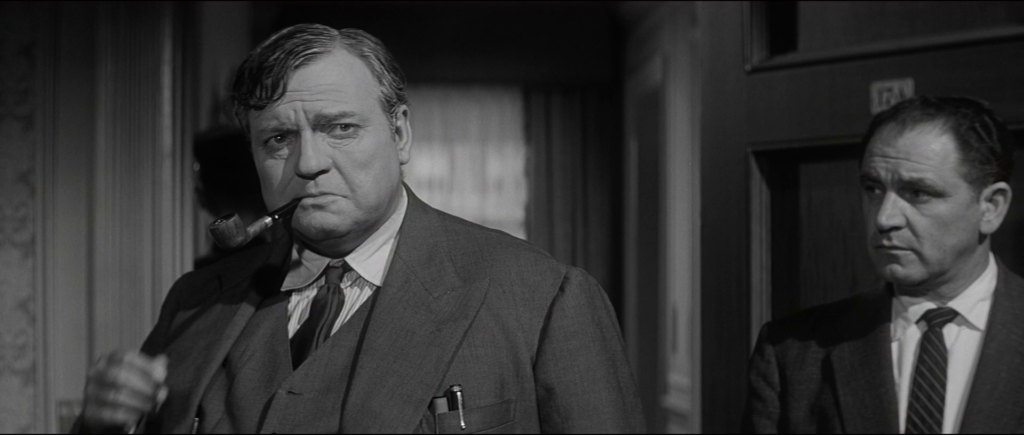
- Dean Stockwell as Judd Steiner
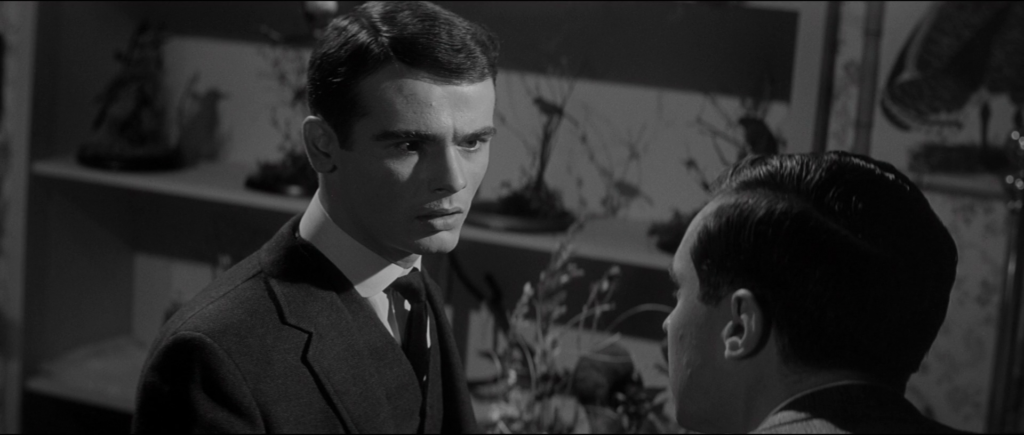
- Bradford Dillman as Arthur Straus
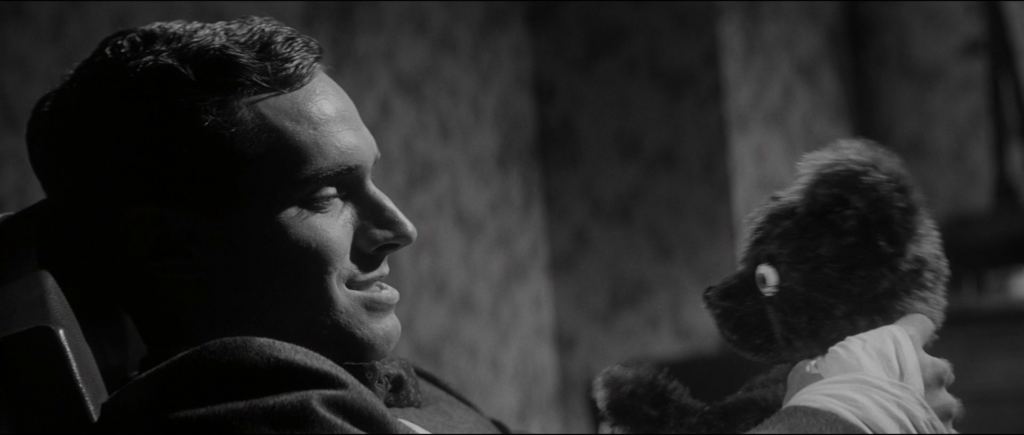
- Fine cinematography
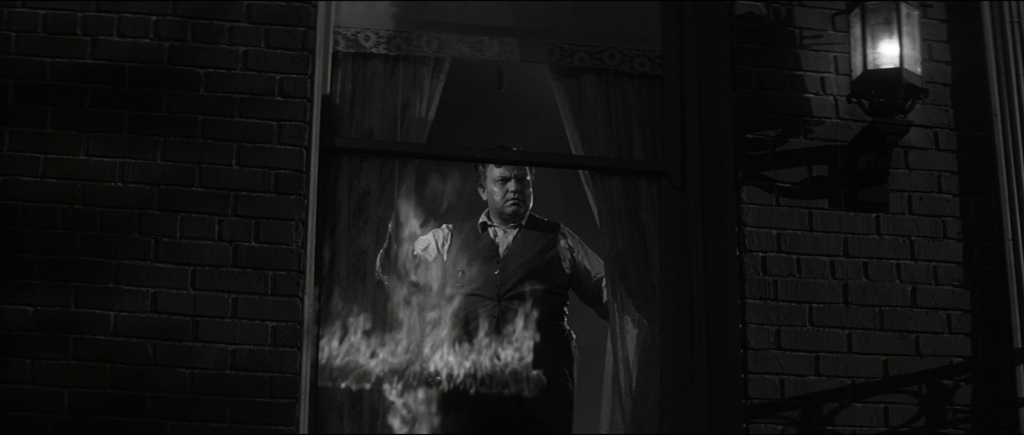
Must See?
Yes, once, as a powerful courtroom drama. Listed as a Personal Recommendation in the back of Peary’s book.
Categories
Links:
|
One thought on “Compulsion (1959)”
Yes, a once-must, for its place in cinema history. As per my 4/14/20 post in ‘The ’40s-’50s in Film’ (fb):
“Are you ditching me for some girl?”
‘Compulsion’ (1959): In Richard Fleischer’s all-the-names-are-changed courtroom drama of the Leopold and Loeb murder case, Dean Stockwell stands in for Leopold, Bradford Dillman for Loeb and, in for defense lawyer Clarence Darrow, Orson Welles gets top billing – even though he only appears in the last 30+ minutes (for the trial itself). This is a fairly straightforward – even perhaps a bit dry and clinical – film ultimately extolling the virtue of compassion (over capital punishment). Nevertheless, Fleischer’s direction results in a compelling watch, esp. since the film’s concurrent interest is in an examination of upper-class privilege. (As Welles says during the trial, “These [parents] might’ve done better if they hadn’t had so much money.”) The legacy of the case includes a subsequent number of fictionalized versions (i.e., Patrick Hamilton’s 1929 play ‘Rope’ – filmed by Hitchcock in 1948, Tom Kalin’s 1992 film ‘Swoon’, even an off-Broadway musical – ‘Thrill Me’ – in 2005, etc.). …Much has been said – and squelched – about the extent to which homosexuality governed the Leopold-Loeb relationship (because of when the film was made, it doesn’t enter into ‘Compulsion’ at all, except as a mere whisper)… but how much of that really matters when we’re talking about two men whose depth of narcissism most likely viewed sex as worship? The film’s aim is clear, summed-up in Welles’ final speech re: society’s response to murder – and Fleischer would go on to exhibit the same attitude towards horrific crime in ‘The Boston Strangler’ (1968). The three leads shared the Best Actor award at Cannes; the film also gets good support from E.G. Marshall. Martin Milner and Diane Varsi.